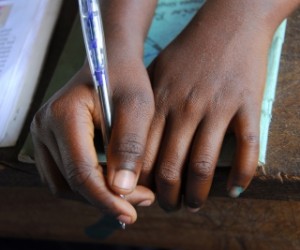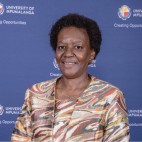The South African government might have patted itself on the back about improved matric results, but in the eyes of the world, it is simply not enough.
The Organisation for Economic Co-operation and Development (OECD) says "skills are the global currency of the 21st century," and gives a long list of failures in South Africa regarding education:
South Africa spent only 4.8% of its annual income on education in 2009, compared to the OECD average of 6.2%.
The World Economic Forum, in its 2012–13 World Competitiveness Report, ranks South Africa second last in terms of maths and science education – only just ahead of Yemen. It ranks SA 133rd out of 142 countries in terms of the 'quality of its educational system'.
Only 54.3% of South African women are active in the workforce, compared to 71% elsewhere.
It is not just government that is being lax about South African skills development; business is also not doing enough to create the conditions for innovation, productivity and profitability.
The latest OECD report on South Africa shows that 32.8% of South Africa's youth were neither in employment nor in education or training – nearly double the OECD average of 18.6%.
It further says that in 2012, the unemployment rate of South Africa's youth was 49.2%, compared with the OECD average of 17.1%.
The OECD adds, however, that there are not very big skills shortages in the workplace – echoing the findings of a recent Chamber of Mines (CoM) report. Once people get into the workforce, they are usually well matched to skills levels, which sensible companies then work on developing.
The problem arises with new graduates or those fresh out of school. Employers complain that new entrants to the workforce are often ill-equipped, and require extensive training to become productive.
Trade union, Solidarity, says only half of those with only a matric are employed, compared to 80% of those with some higher education.
Stella Carthy, head of skills development at the CoM, says: "Companies should consider internal training, especially with regard to already skilled individuals to get them to the level required by line management."
The very big companies in South Africa are sensitive to the importance of ongoing training at every level of the workforce, but there needs to be a broader vision: one designed to assist schools, motivate teachers, and give more mentoring and internships to help young people develop a sense of what they need to know for a successful future career.
Ultimately, we all play a role in the education of young people, and the ongoing education of our workforce; to have a maths and science ranking just above that of an impoverished nation such as Yemen means we have lost our way as a nation. We cannot wait for government to remedy the situation – we all need to become involved.






